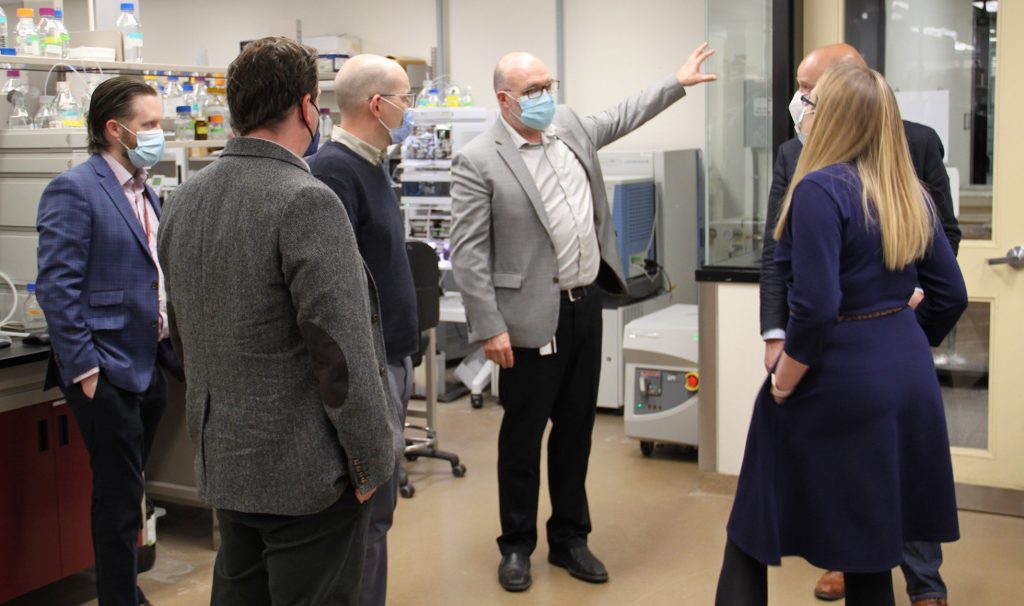McMaster, University of Birmingham researchers explore potential partnership

A delegation of researchers from the University of Birmingham's Institute of Microbiology and Infection visited McMaster to see first-hand and explore partnership opportunities with Canada’s Global Nexus for Pandemics and Biological Threats and the Michael G. DeGroote Institute for Infectious Disease Research.
BY Blake Dillon
May 9, 2022
A delegation of researchers from the Institute of Microbiology and Infection at the University of Birmingham recently visited McMaster to explore partnership opportunities with Canada’s Global Nexus for Pandemics and Biological Threats and the Michael G. DeGroote Institute for Infectious Disease Research (IIDR).
The three-day science discussion brought together some of the world’s best infectious disease researchers to discuss pandemic-related research synergies and a collaborative training program for postdoctoral researchers and graduate students.
Such a partnership would enhance infectious disease research and training both at McMaster and at Birmingham, says Gerry Wright, scientific director of IIDR and lead at Canada’s Global Nexus.
“The Birmingham Institute of Microbiology and Infection is a world-class research centre, and working with our colleagues there will provide excellent opportunities for both institutions to strengthen their respective research programs,” Wright says.
“Working together will also allow for our students and trainees to gain international training experience and diverse mentorship.”
The opportunity for collaboration was sparked by a 2021 visit to the University of Birmingham by Karen Mossman, vice-president, research, and Matt Miller, associate professor of biochemistry and biomedical sciences, both members of Canada’s Global Nexus, IIDR and the McMaster Immunology Research Centre.
Having the opportunity to see McMaster’s approach to infectious disease research and training first-hand was a critical part of the recent visit, says Willem van Schaik, director of Birmingham’s Institute of Microbiology and Infection.
“When we met with Drs. Mossman and Miller in Birmingham, we knew we had to see and learn more to fully appreciate and realize the opportunities for collaboration,” van Schaik says.
“Exchanging knowledge, touring McMaster’s labs and meeting with trainees and students confirmed that our mission and mandates are very much aligned. I am confident that our shared interests will lead to further collaborations in research and education.”
This is the first step in what will be a long partnership, Wright says, having identified a number of mutually beneficial initiatives to advance infectious disease research and training.
“Together, we are well positioned to tackle the most pressing issues in infectious disease research, such as COVID-19 and antimicrobial resistance,” Wright says.
This is the first of two University of Birmingham delegations to visit McMaster this month. From May 25 to 27, experts studying air and water quality, policy and law, healthy aging and other areas of research will meet with McMaster colleagues as part of the Birmingham 2022 Queen’s Baton Relay in advance of the Commonwealth Games, which will be held in Birmingham this summer.


